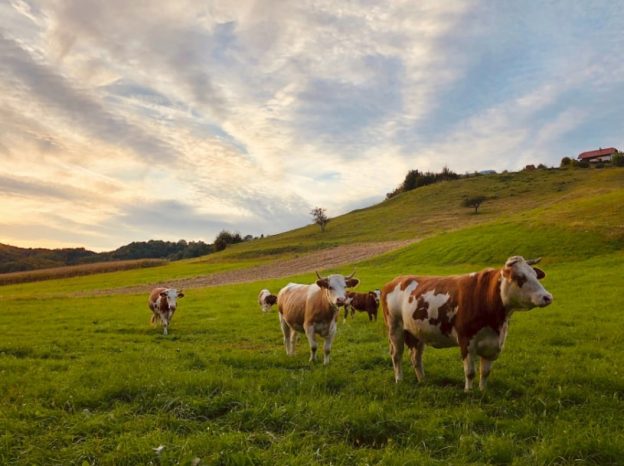The organic milk market in the UK has been through a very volatile period. There was a big decline in 2023, but recovery has been underway since. Demand is currently rising, pushing prices to record highs. That is good news for farmers, but there are major concerns about feed availability and the impact on animal health. We want to have a closer look here.
A warning
ForFarmers is warning that the organic dairy farming industry may have very tough times ahead this winter. The problem is grass growth has not been good since July due to the dry conditions. Many farmers are already using forage they conserved from earlier in the year. The concern is shortages could be on the horizon, especially as we get into winter.
Poor grass growth has a much bigger impact on organic dairy farmers. To achieve and retain the organic classification, at least 60% of a cow’s diet must be forage. There are also limits in terms of silage and moist feeds; fewer options are available that meet the organic criteria.
What to do?
The recommendation is organic dairy farmers should be proactive with their planning and forage budget. Crucially, each farmer should have a look at pasture conditions, reserves, and check what kind of silage is available. Plan around this, look at alternatives, and order additional supplies as early as possible if you are likely to have a shortfall.
A crucial thing to keep in mind though is the importance of quality. It has a big impact on animal health and productivity. Even more, it can be significant for organic farmers due to the rules and requirements.
It is also a good idea to look to see if there is a chance to extend the current grazing season. Some farmers may be able to if they sow root crops as soon as possible. Forage rape is a good option for many areas because it is grows quickly and has impressive hardiness.
Defra acknowledges the situation
If you aren’t convinced about the potential tough times ahead, Defra has also offered some guidance. They may allow derogations so organic dairy farmers can feed conventional forage to cattle that aren’t producing milk. This includes dry cows and young animals. As a result, farmers could preserve other approved feeds specifically for productive stock.
Crucially, Defra will decide the situation on a case by cases basis. They’ll have to look at factors such as feed availability in an area. It is likely organic dairy farmers will need to adhere to strict criteria if they can get a derogation. This will ensure they can retain organic certification.
Prioritising animal health
When there are risks like potential feed shortages, it is vital to plan ahead. The priority should be to protect animal health and supplies of products like milk. Being proactive is vital, especially before winter.
JS Hubbuck Ltd is a fantastic business if you are working to maximise animal health. We have a great range of products, all from fantastic producers. Even better, we have a wealth of product knowledge so you can get all the details you need to make sound decisions.
If you want to work with a passionate family business, contact us today.

